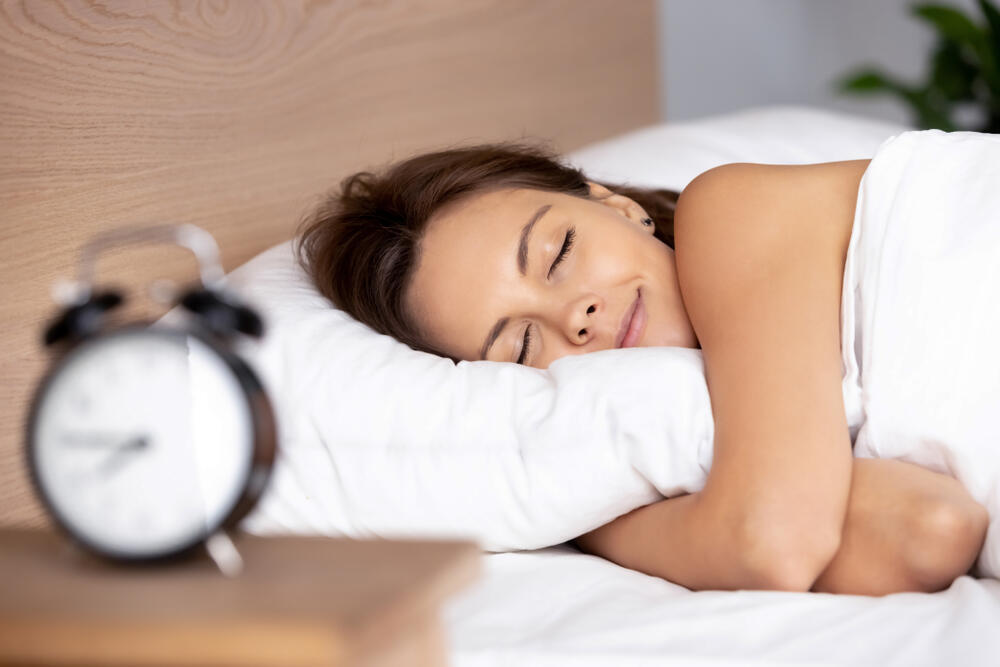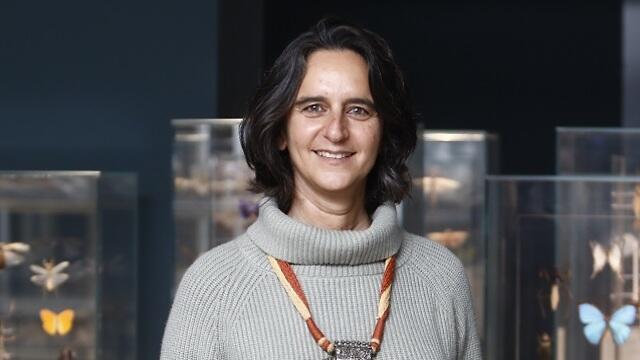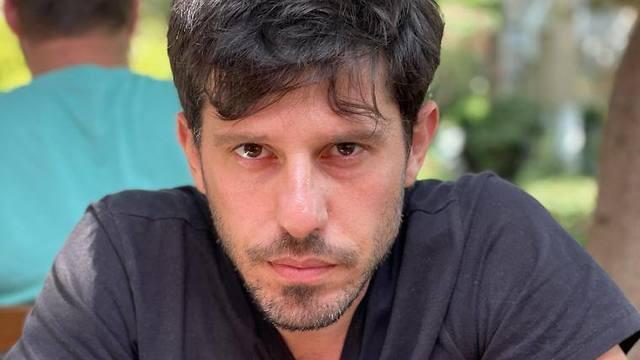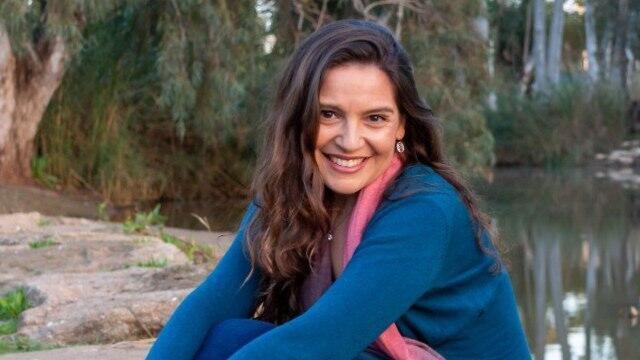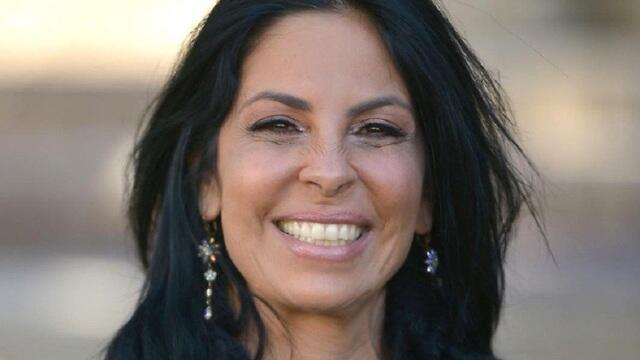Getting your Trinity Audio player ready...
The night has fallen and the house is quiet. You've just finished another gripping chapter of your series. Now, you're faced with a decision: Do you start the next chapter or call it a night?
You know tomorrow will be a long day full of important tasks, and being well-rested is crucial. But you also know that sleep won't come easily. With a heavy hand, you grab the remote and make your choice. "Just one more episode, I swear to god!"
You've been itching to do something for yourself lately - learn a new skill, get active, catch up with a friend. But when is there time? Only "after". After work, after the kids are in bed, after dark.
It seems like the evening hours are reserved for everything but you. You make plans, only to cancel and reschedule, feeling guilty each time. But deep down, you know you'll just end up collapsing into bed at 9pm again.
Don't beat yourself up! According to science, you may just be a night owl instead of an early bird. Your biology and physical condition could be the reason why you struggle to make the most of your mornings.
But that doesn't mean you can't change your habits! With some effort and determination, you could develop new routines that allow you to enjoy those early hours. Maybe it's time to stop feeling guilty and start embracing your natural rhythm!
"Each of us has a biological clock located at the base of the hypothalamus in the brain," explains Prof. Noga Kronfeld-Shor, the chief scientist of the Ministry of Environmental Protection and a researcher of biological clocks at Tel Aviv University.
According to her, "The clock mechanism exists in every cell in the body, and in a normal state, all the clocks in the body are synchronized to the central clock in the brain."
So our DNA holds the answer to whether we should turn in early or not?
"Certainly! One way to determine someone's internal cycle is by taking a skin sample, growing the cells in culture, and measuring the expression of genes in the cells throughout the day.
"This allows us to determine whether the individual is a morning or evening type, which is determined by their internal cycle. However, not everyone fits neatly into these categories.
"Most people are somewhere in the middle, with a slight tendency towards the evening. In fact, only two out of ten people are true evening types, while only one in ten is a distinct morning type."
Is it better being one or the other?
"Morning types are those who naturally wake up early, even on weekends or holidays, without much need for an alarm clock," explains Prof. Kronfeld-Shor.
"While it may be commonly believed that morning types are more hardworking, this is a misconception. The reality is that our society is simply structured around early mornings, making it easier for morning types to function.
"Unfortunately, this means that evening types often suffer from sleep deprivation during the week, as they struggle to adapt to a schedule that doesn't match their internal clocks."
Did you know that according to a study from Finland published in the Scandinavian Journal of Medicine & Science in Sports, morning types tend to exercise more than evening types, regardless of gender?
That said, evening types aren't slacking off completely. The study also found that men who were evening types engaged in more relaxing activities during the dark hours. As for women, it turns out that evening types rest just as much as their morning-type counterparts.
How do you recommend each type to manage his life?
"Even without realizing it, we often choose jobs or hobbies that match our natural rhythm. For example, basketball players are more likely to be evening types while triathletes are typically morning types.
"It's important to know your own rhythm and schedule your activities accordingly. Morning types may benefit from early morning exercise while evening types may want to schedule important meetings later in the day."
Nir Breitman, a 37-year-old Tel Avivian, knows all too well about the unfounded criticism of evening types. "I can't recall ever being a morning person," he admits.
"Even as a teenager, I didn't get up at the crack of dawn, and I still struggle to get up for work." It's no coincidence that Breitman has built a career in the nightlife industry. He co-owns two popular bars in Tel Aviv, "Ilka" and "Cervesa.
"I didn't choose the nightlife, it chose me. When I was young and full of energy, I used to go out a lot and eventually landed a job as a party publicist. From there, I climbed up the ladder and now co-own successful bars in Tel Aviv.
"Before the pandemic hit, I used to stay up until the wee hours of the night and wake up around 11 am. But during the lockdown, I tried to establish new routines and started going to bed earlier.
"Now, I'm trying to stick to this habit and it's been making me feel better."
Breitman experienced a lifestyle change two and a half years ago when he became a father to a son. As we all know, children usually wake up early.
However, Breitman believes that being an evening-type parent has its advantages: "Most people are busy working during the day and don't get to spend much time with their kids. Since I don't work during the day, I can pick up my son from kindergarten almost every day. If he's sick, I can stay at home with him.
"This way of life is not just due to work circumstances. it's a conscious choice. Unfortunately, some people perceive it as laziness or a lack of ambition.
"They fail to recognize that while they sleep, I am being productive and getting things done during my active hours. It's important to acknowledge that the world needs individuals like us, who function optimally at different times of the day."
On the other end of the spectrum, we have Yifat Cohen, who is a business development manager in the startup and venture capital industry. Moreover, she has also delved into the realm of personal development in recent years.
Cohen is the head of The Israeli Five AM Club, a Facebook community with roughly 27,000 members. The group's mission is to kickstart their day at, you guessed it, five in the morning.
"The early hours of the morning offer us a peaceful and personal space to pursue our passions, fulfill our aspirations, and ignite the spark within us," she says. "I also find these hours magical - the world is quiet, and there's a sense of calmness in the environment and nature, free from the distractions of phones and other technology."
The idea for the club was inspired by Robin Sharma, a well-known Canadian author who has provided spiritual self-help to millions of corporate individuals in Western society through his previous book "The Monk Who Sold His Ferrari." Sharma's latter book, "The 5AM Club: Own Your Morning. Elevate Your Life." promises success and prosperity in all areas of life for those who wake up even before sunrise.
"The method I follow is based on the 20-20-20 principle," she explains. "I start my day with 20 minutes of physical activity, followed by 20 minutes of spiritual activity, and end my morning routine with 20 minutes of mental activity or learning.
"This allows our 'internal pharmacy' to operate in a way that improves our lives. I strongly believe that the way we start our mornings determines the rest of our day.
"If I start my day with a sense of strength and well-being, it stays with me throughout the day. Moreover, it creates a sense of competency in me, knowing that I have control over this habit and that I can control every aspect of my life."
Waking up so early, when is a good time to go to sleep?
"As Robin Sharma suggests, I aim to get seven and a half hours of sleep each night, which means ideally falling asleep by 9:30pm However, I understand that it may not always be feasible to go to bed that early, and that's okay.
"Even on weekends when I stay out late, I may choose to wake up later. It's important to note that this is not a religious practice or a sect, but rather a personal choice."
Dr. Keren Or-Chen, who is a lecturer at the School of Social Work at Haifa University, explains that evening types tend to experience more conflicts than morning types.
"For them, the circle of life can feel almost impossible to navigate. Western society is structured around a day-to-day lifestyle, which comes with its own set of challenges.
"Unfortunately, this can lead to conflicts in many areas of our lives, including relationships with spouses, children, and employers. In fact, as much as 80% of conflicts can be traced back to differences in sleep and work schedules."
How does this manifest in our romantic lives?
"A night owl may end up marrying a morning person. Initially, it may not be too apparent, but as time passes, the morning person might go to bed and start snoring at 9 pm, while the night owl stays up till dawn.
"The morning person may want to have sex in the morning, while the night owl prefers it at night. This can lead to disagreements, especially when it comes to raising and taking care of children."
Is it possible to change?
"Any attempt to change one's chronotype would only be temporary. Morning types are naturally more effective during the day and their abilities tend to diminish when the sun goes down.
"As a morning person myself, I sometimes have to write articles at night due to time constraints. While I do adapt, it's not something I enjoy. People are born with a certain chronotype and it's not possible to change it permanently. "
"Even if we're forced to change our habits, such as during vacations or retirement, we'll eventually revert back to our original type."
Although Western society poses challenges for those who identify as evening types, they are not a rare species and will likely continue to exist. It's important for individuals to have self-awareness and plan their daily schedules based on their personal preferences.
It's worth noting that those who prefer to wake up later are not necessarily lazy, but rather descendants of a lineage of night-watchers, and should be provided with opportunities that match their natural rhythms.


